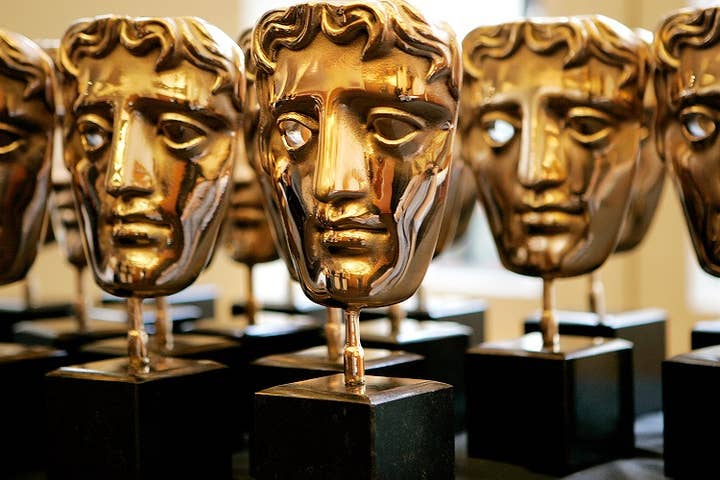The truth about video game awards events | Opinion
Awards events are a celebration that some might want to take a little less seriously
The Game Awards are almost here, which means here comes the Discourse.
I've worked out that I've helped to organise around 50 video game awards so far in my career, including the Best Places To Work Awards, GI 100, Women In Games Awards, MCV Awards, 30 Under 30, and the Games Media Awards. And that doesn't factor in my roles as a judge, including four times on various BAFTA panels.
You'd think I love awards, but I actually don't, not really. As a spectator, I always feel they run too long (despite the best efforts of the team behind it), and as an organiser... well awards are the one event type where more people leave disappointed than happy. There's nothing worse than a Net promoter score after an awards show.
The one thing everyone always has an opinion on is how the awards are judged. It doesn't matter what awards you pick, there will be people who will criticise how they're decided. And the truth is... they're right.
It doesn't matter what awards you pick, there will be people who will criticise how they're decided. And the truth is... they're right
There is no perfect awards judging process. I know one senior games exec who is super critical of the BAFTAs. "It's too subjective," they argue. "It's not judged by the people who matter: the players." This person in question swears blind by the Golden Joystick Awards, which is voted for by fans.
He's not wrong about the subjectivity of the BAFTAs. One year I was on a BAFTA panel and it was a tight decision. In the end, the game that won did so by a single vote. Two games in second place were tied. I voted for the eventual winner. It was a brilliant horror game and I love that genre. But I often wonder what might have happened if they'd had a different journalist on the panel? One who didn't like horror games. It feels likely that with a different panel, an entirely different winner would have emerged.
And yet, the populist approach has big issues, too, particularly with the more niche categories. One year, Assassin's Creed Liberation – a perfectly adequate 7/10 – won Best Handheld Game at the Golden Joysticks. It beat several excellent 3DS titles, including Fire Emblem Awakening. The organiser explained to me that the public "just like Assassin's Creed" and probably voted for it for that reason. “Honestly,” they said “I’m not sure how many of our audience would have played Fire Emblem”.
A lot of awards try to counter these issues by creating a middle option, which combine the two methods. So you might go down the panel route, which make up 50% of the score, and then you get fans to judge it, too, for the remaining 50%. A bit like how Eurovision works. A more common compromise is to get a large panel of experts, say 100 media professionals, to vote .You don't get the panel 'debate' that you get with the BAFTAs, but there’s too few for it to be truly populist, and too many for it to be truly subjective.
But actually, and I have first-hand experience of this, you can end up with the worst of both worlds: an awards event that's simultaneously populist and subjective.
Ultimately, there is no perfect awards system. There is always a flaw. Some people treat awards events as the definitive judgement on games, but they're always just one way at looking at things. With most awards (the good ones at least), the winners deserve to win, but the losers don't deserve to lose.

Of course it's not just the judging that gets regular criticism. Sometimes it's the finalists or, for me at least, the categories. Why did you choose that category over this one? Why isn't there a category for me?
The truth is, awards often have another, non-commercial reason to exist. And sometimes that 'other' reason is actually its main purpose.
For The Game Awards, its other primary purpose is obvious: it's a marketing vehicle in which to announce video games. For the Women In Games Awards, it's about promoting, highlighting and improving the diversity of the games industry. For our Best Places To Work Awards, the primary objective is to try and make the games industry a better place to work. The actual awards component supports these aims.
With most awards (the good ones at least), the winners deserve to win, but the losers don't deserve to lose
Take the categories in our Best Places To Work Awards. We have an award for trying to improve diversity, for mental health support, for helping charities, for educating the next generation of talent and we have an award for excellent management. These are all things the games industry has notoriously struggled with, and areas in which we want to help. All our categories are tied to that central objective of trying to make games employers better.
Here’s another example. I have worked on nine MCV Awards, which was a UK publishing and retail awards event. We had an award for Best Distributor (companies that shipped games to retailers) and every year, give or take, the same company won: CentreSoft. Once I was asked: "Why do you bother doing the CentreSoft Award? Is it just to sell more tables.'
Making sure you can fill a room with attendees is important, of course. But awards that prioritise ticket sales will only ever go so far. They're the ones where each award has 19 different finalists, or there are 30+ categories, and they’re rarely taken seriously as a result. No, the real reason the MCV Awards kept 'the CentreSoft award' was because if it didn't, then CentreSoft – and its competitors such as Gem/Exertis and Koch – wouldn't be invited to come. And that's a problem, because at its core, the MCV Awards was a networking event for the publishing and retail industries. It was a party.
It was one of just a few moments in the UK calendar where Ubisoft hung out with EA, Nintendo rubbed shoulders with PlayStation, and GAME would have a drink with Amazon. Distributors are part of this world (and at one point, a very active part). If MCV decided to cut that award – and we considered it – then it would have failed in one of its primary reasons to exist.
The Game Awards this week features a lot of different categories, and almost all of them are designed to appeal to core game fans. You’re not going to get a lot of mobile or casual titles up for prizes – Wordle doesn't get a single nomination. The job of The Game Awards, outside of celebrating great games, is to entertain gamers, so that publishers can showcase what's coming next to them.
And there's absolutely fine. The Game Awards, in fact all awards, are not perfect. It's not possible. There are always too many categories, oh and not enough categories. The judging system is never right. Judging panels are rarely fair. And someone is always calling them corrupt on social media.
So when The Game Awards takes place this week, your best bet is to accept its fallibility. Treat it for what it is: a celebration of video games and the people who make them. An event where the winners deserve to win, but the losers don't deserve to lose.
And a show where we'll hopefully get some fun announcements to get excited about.









